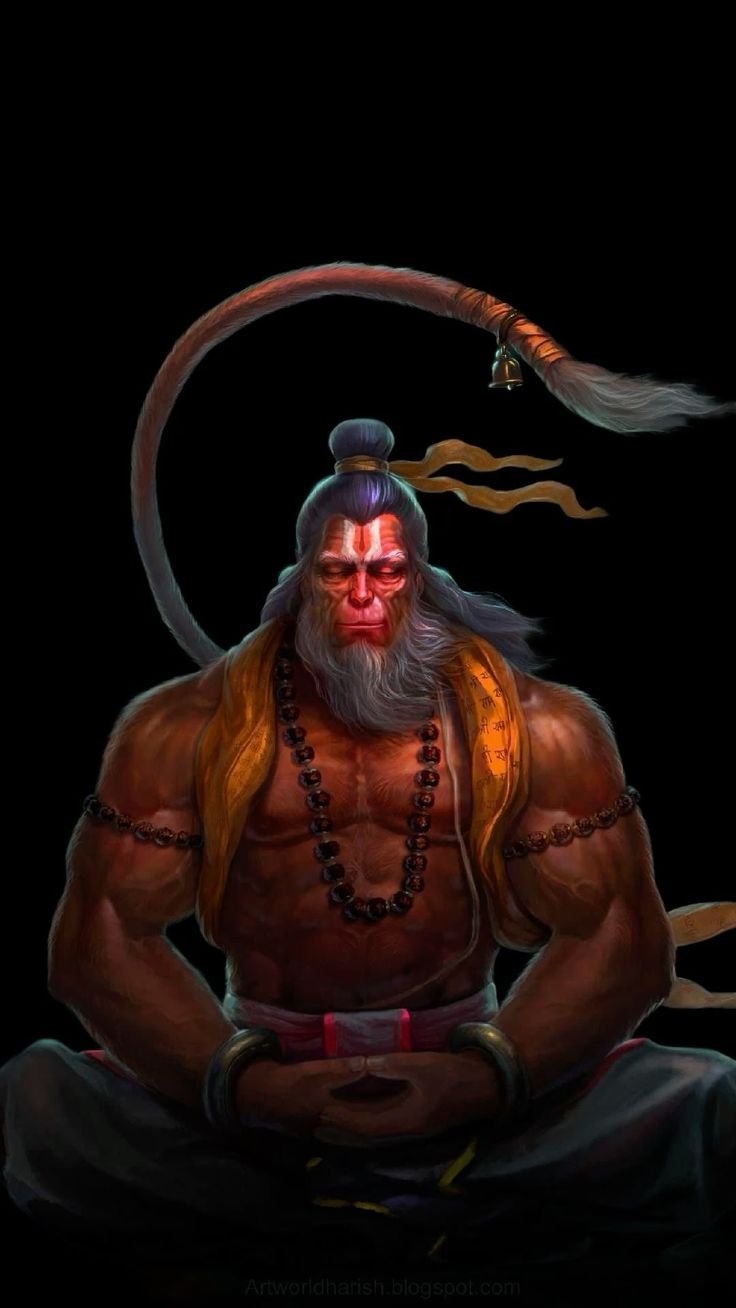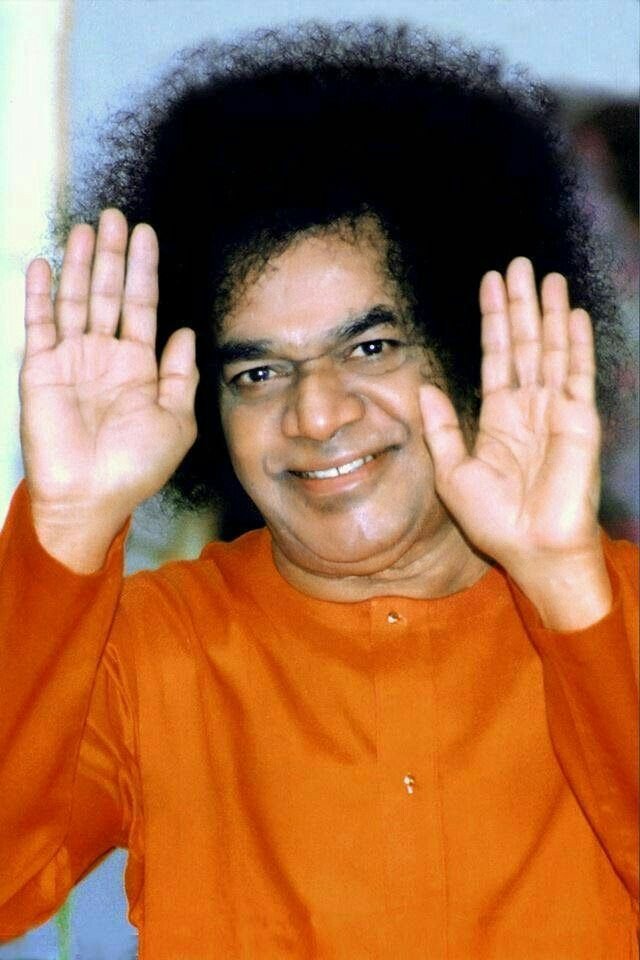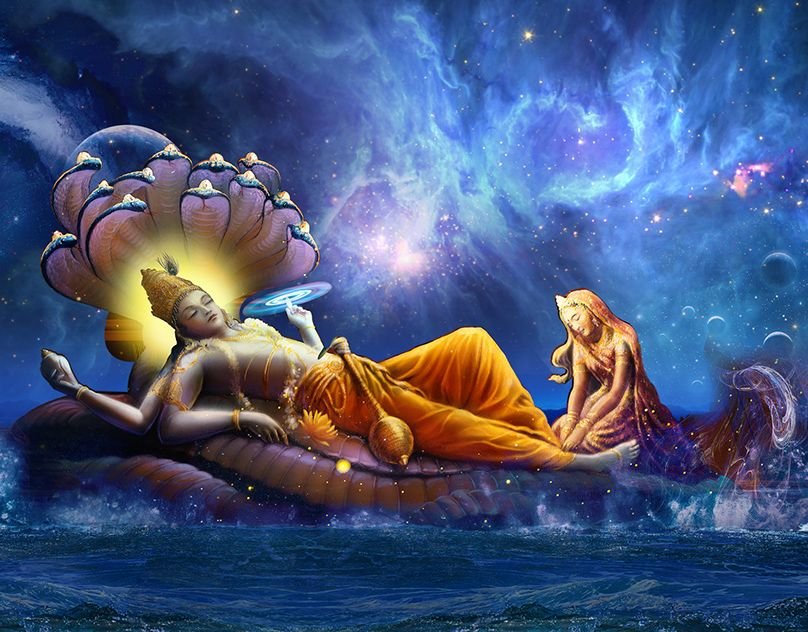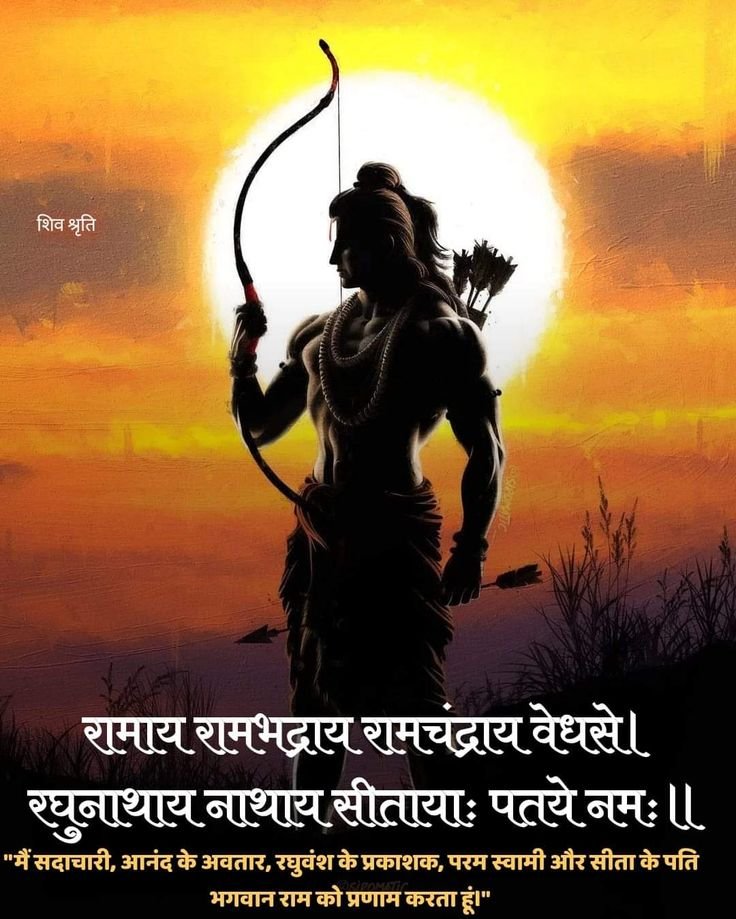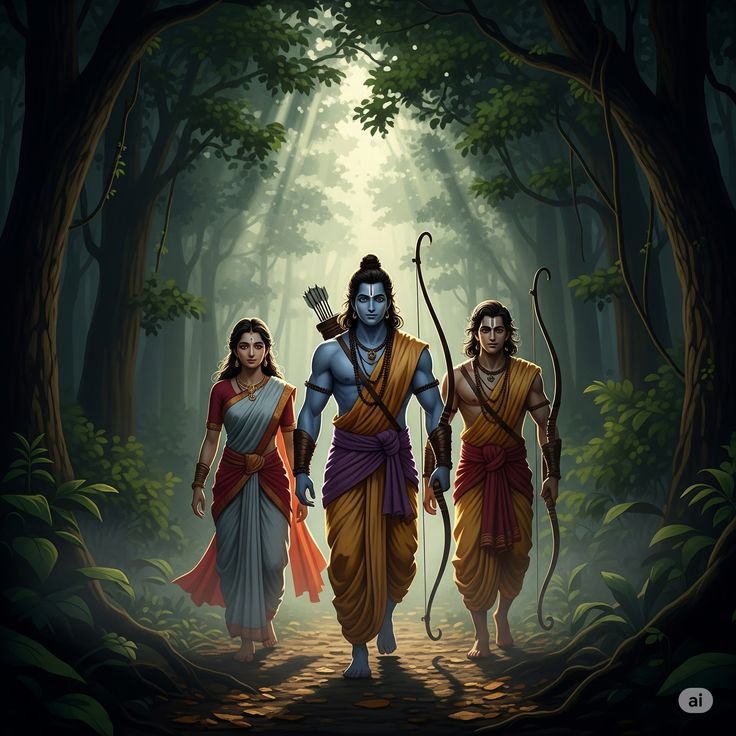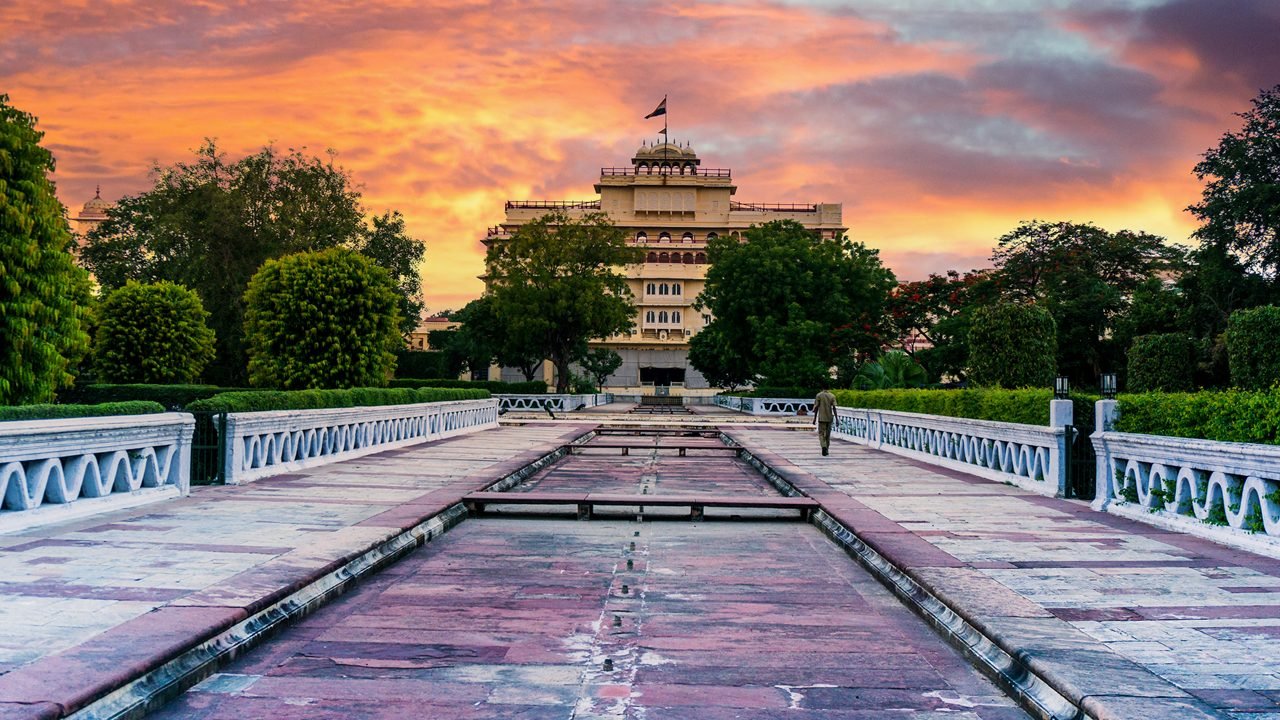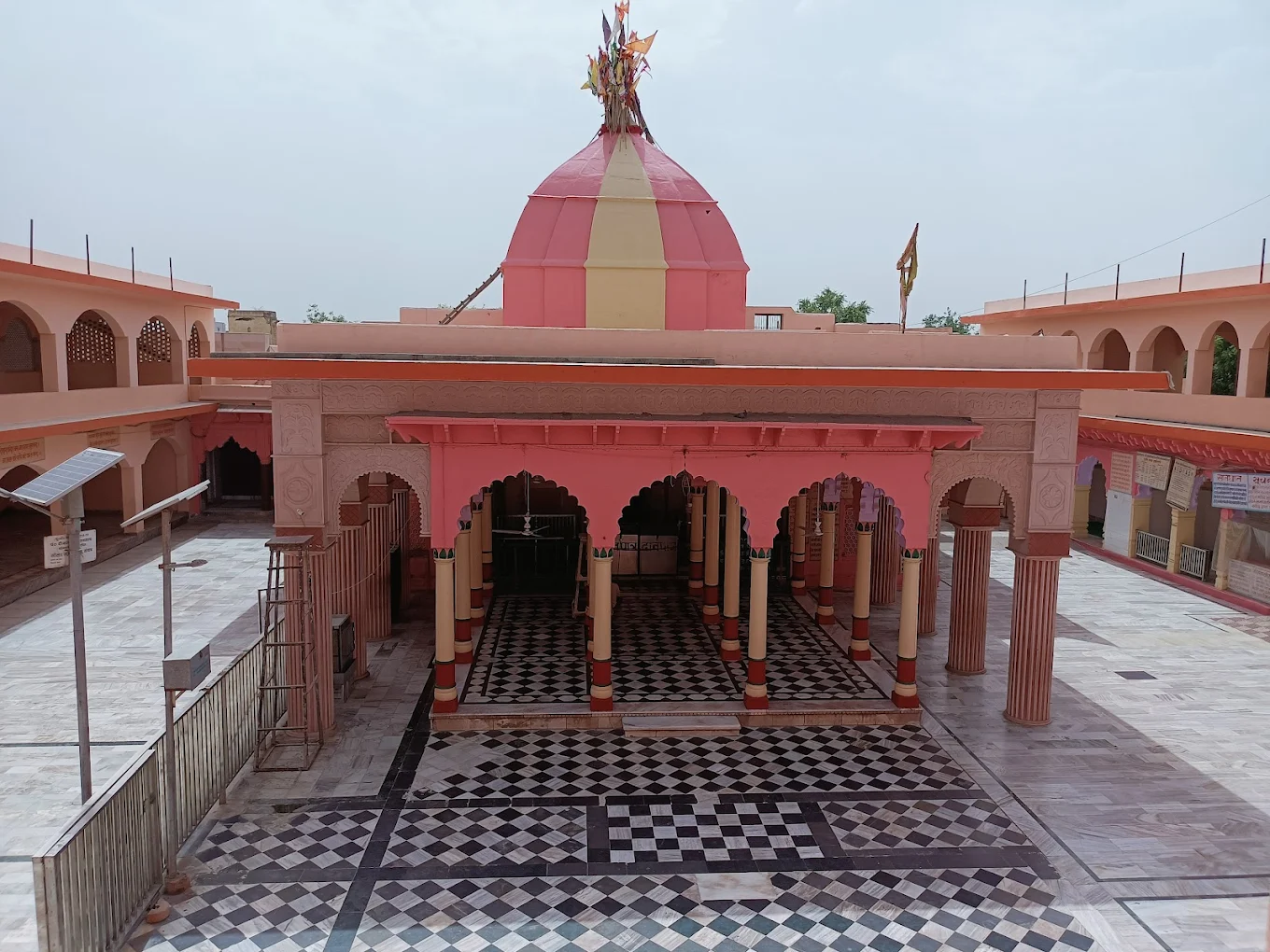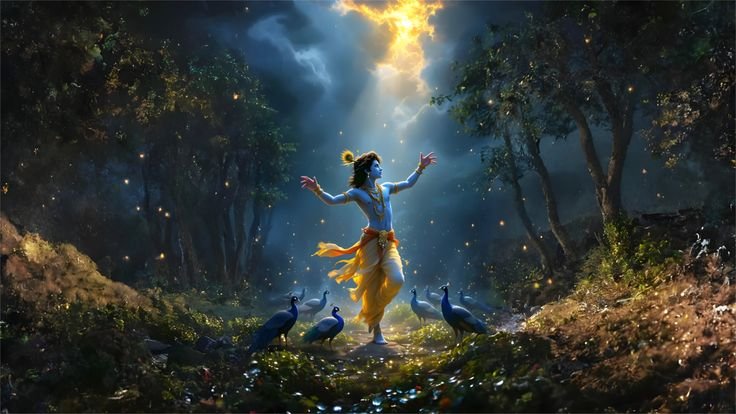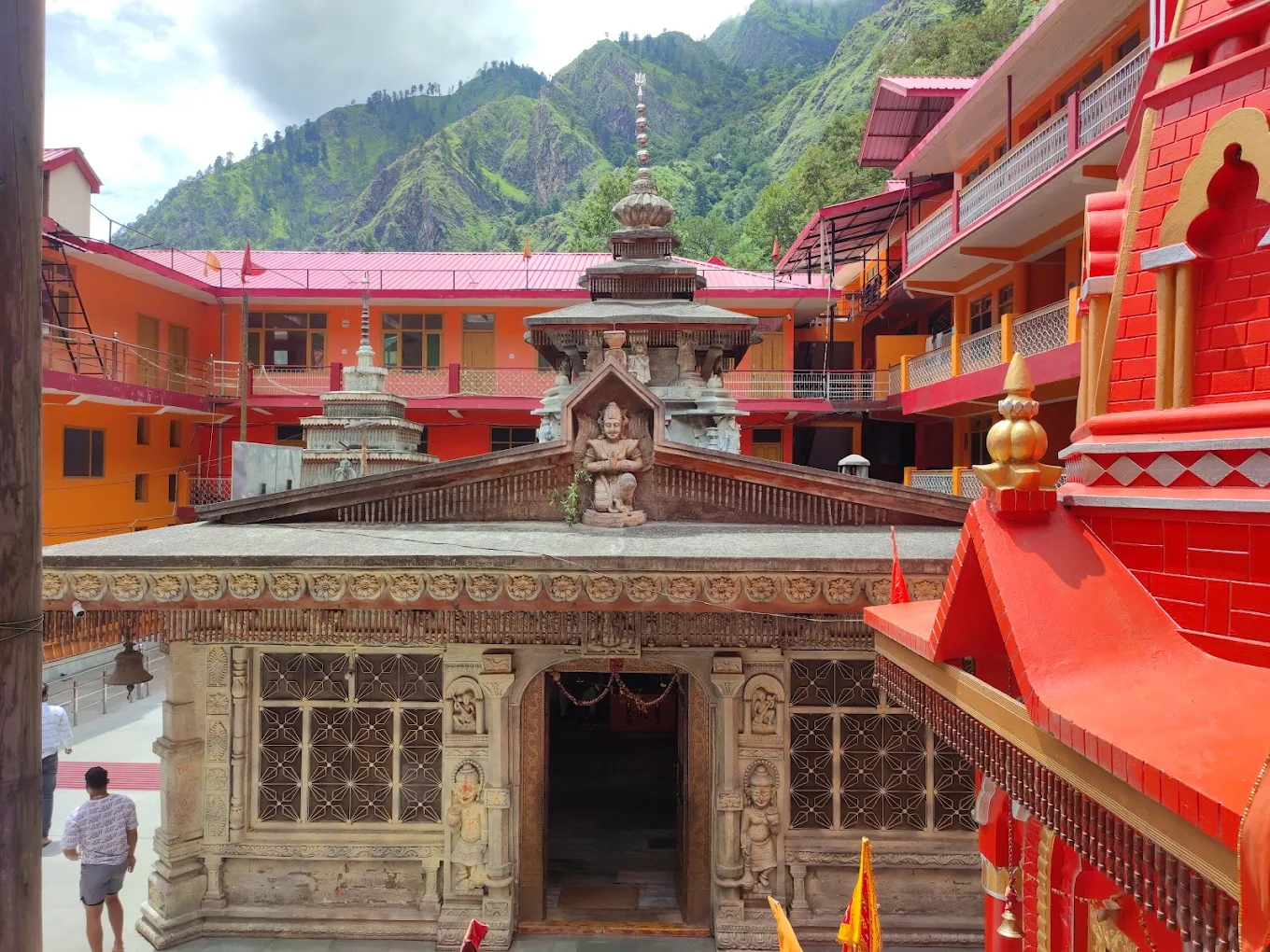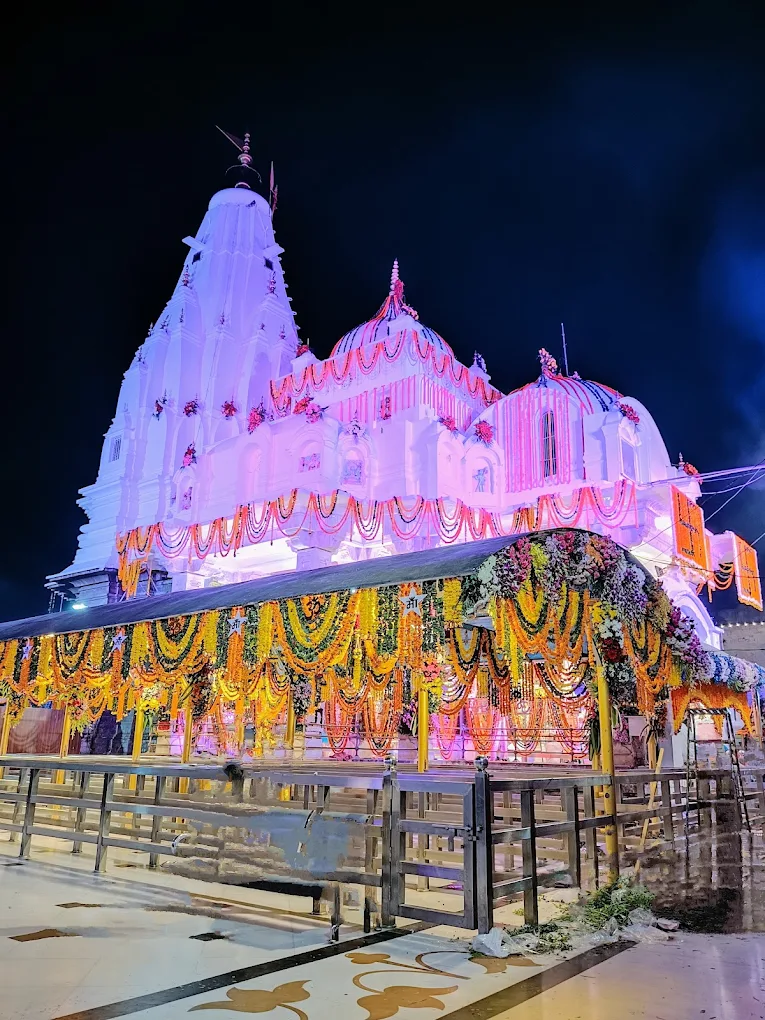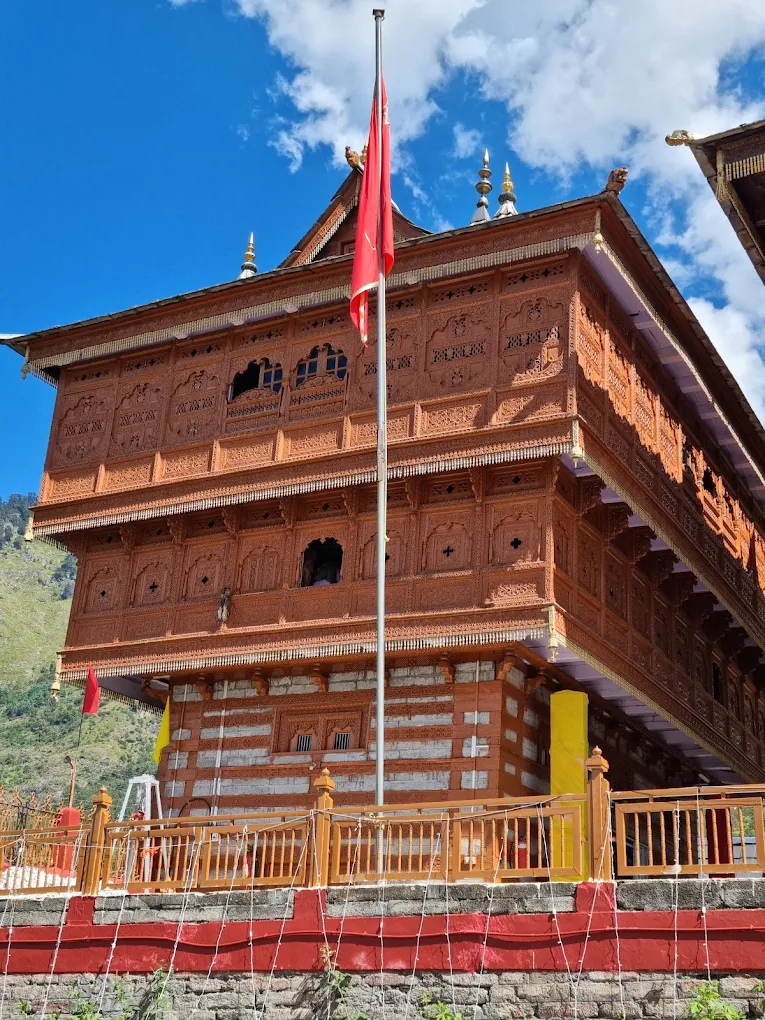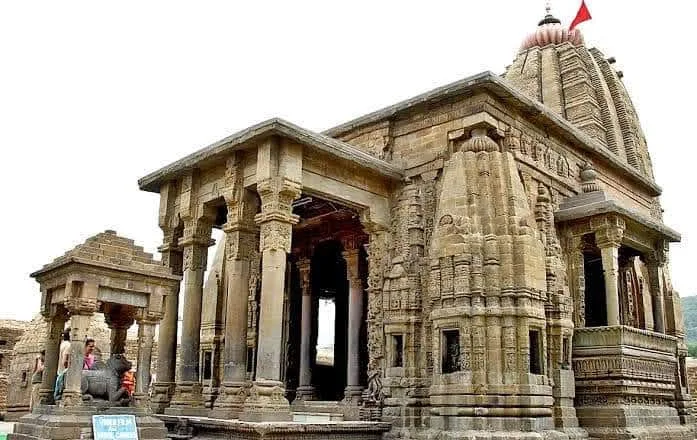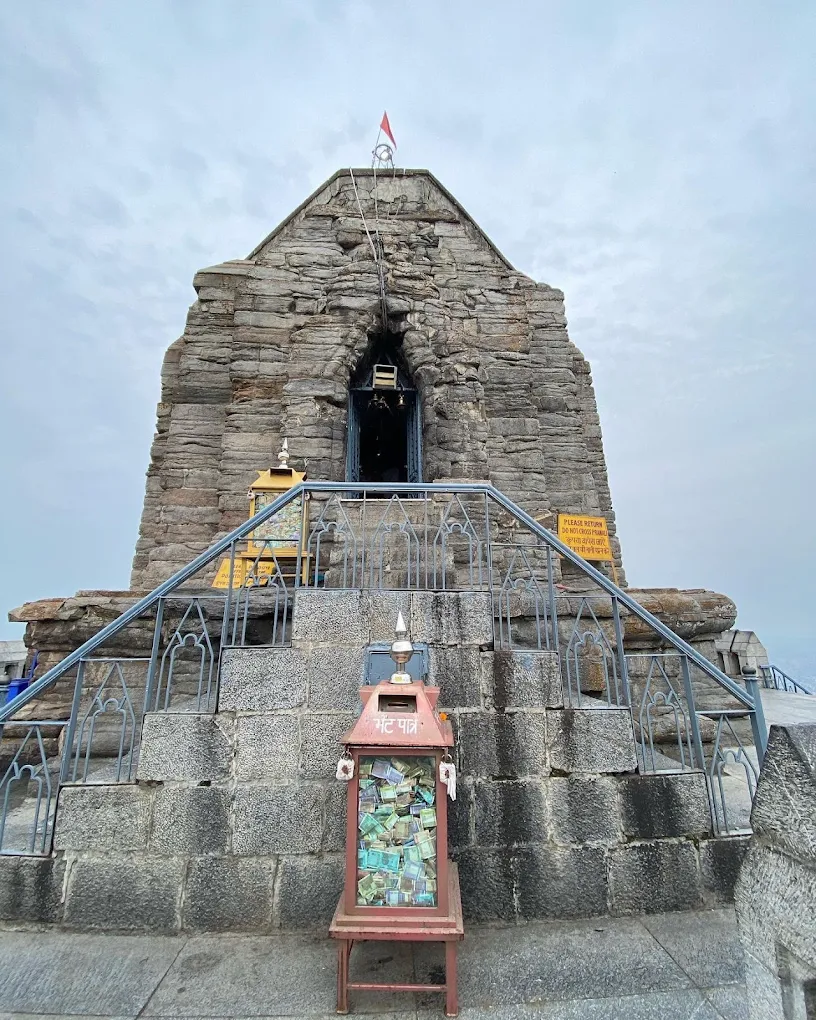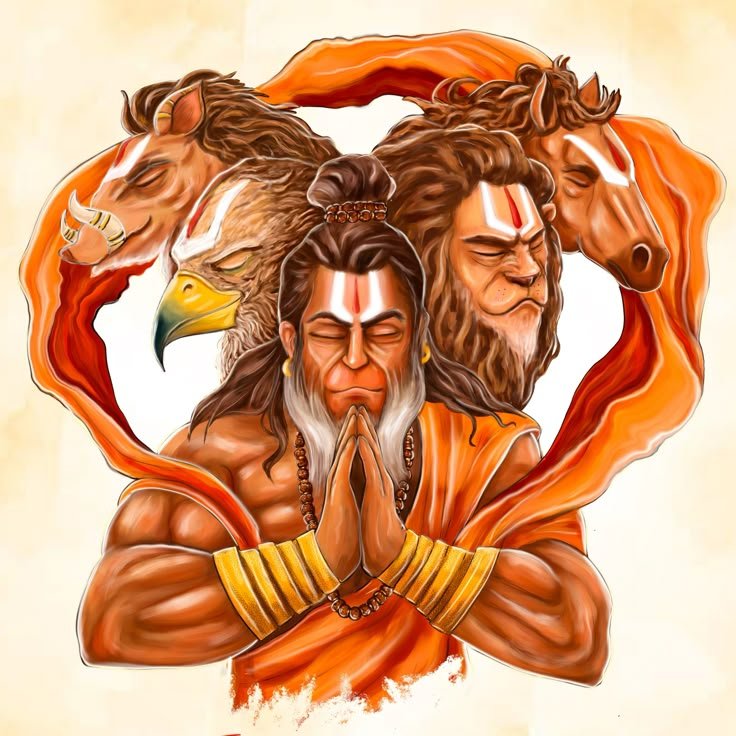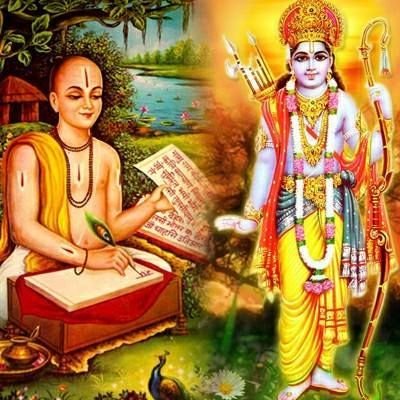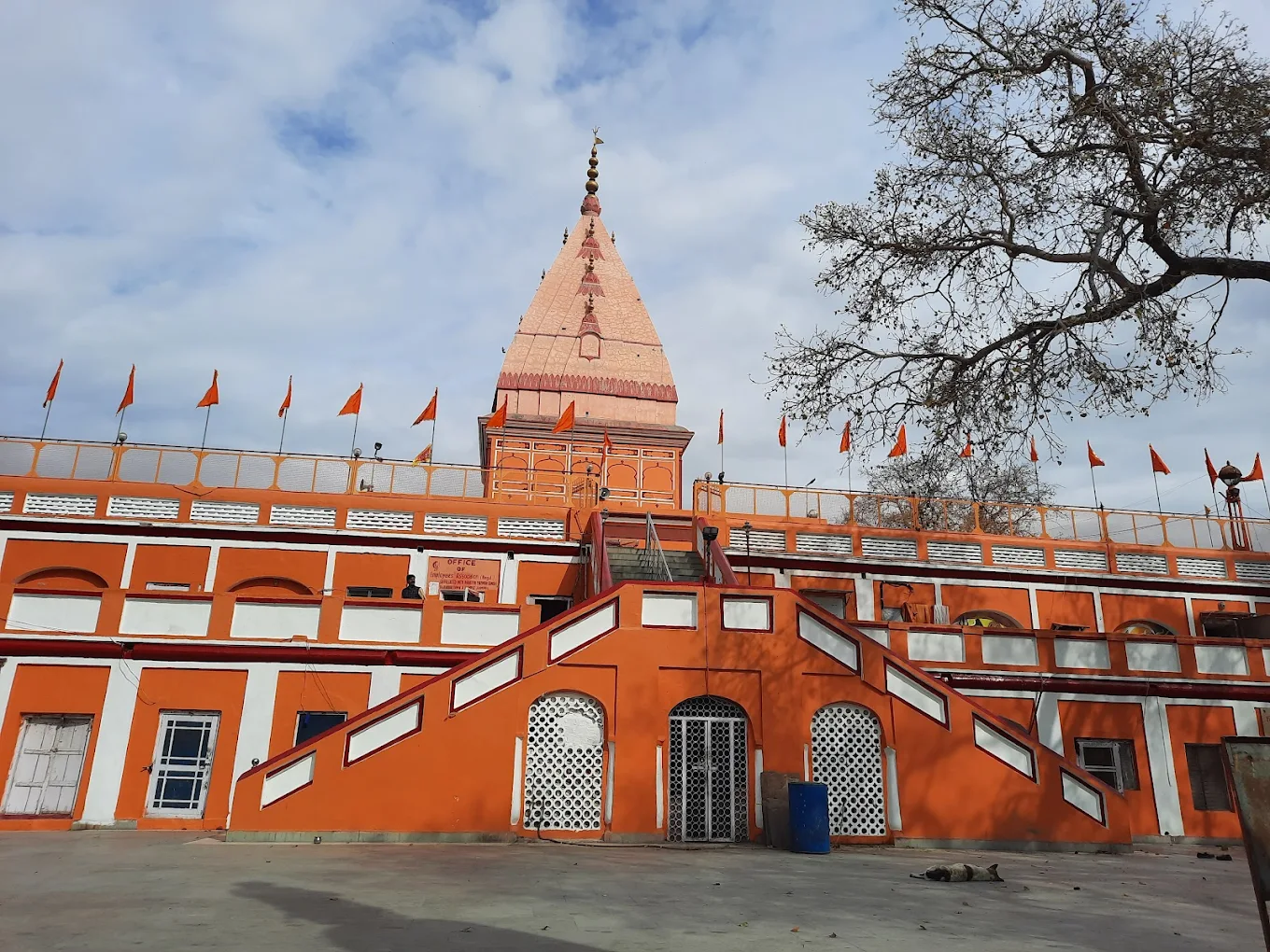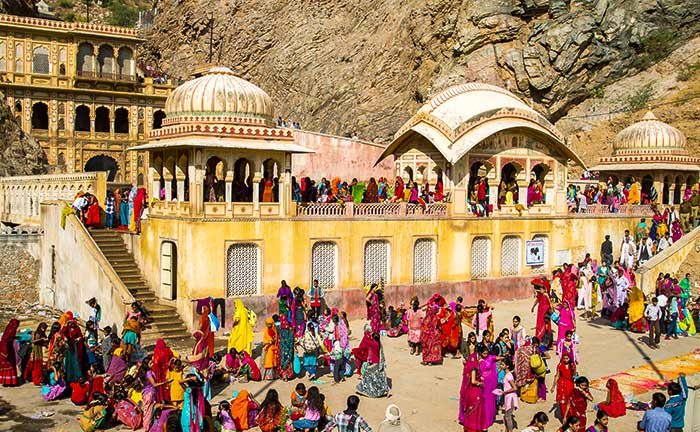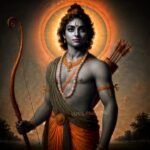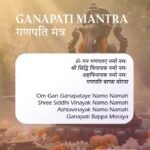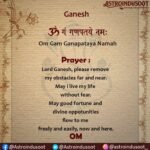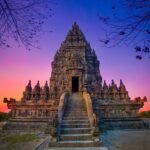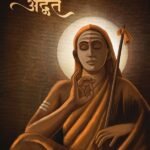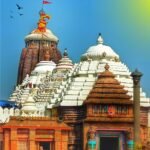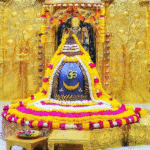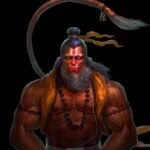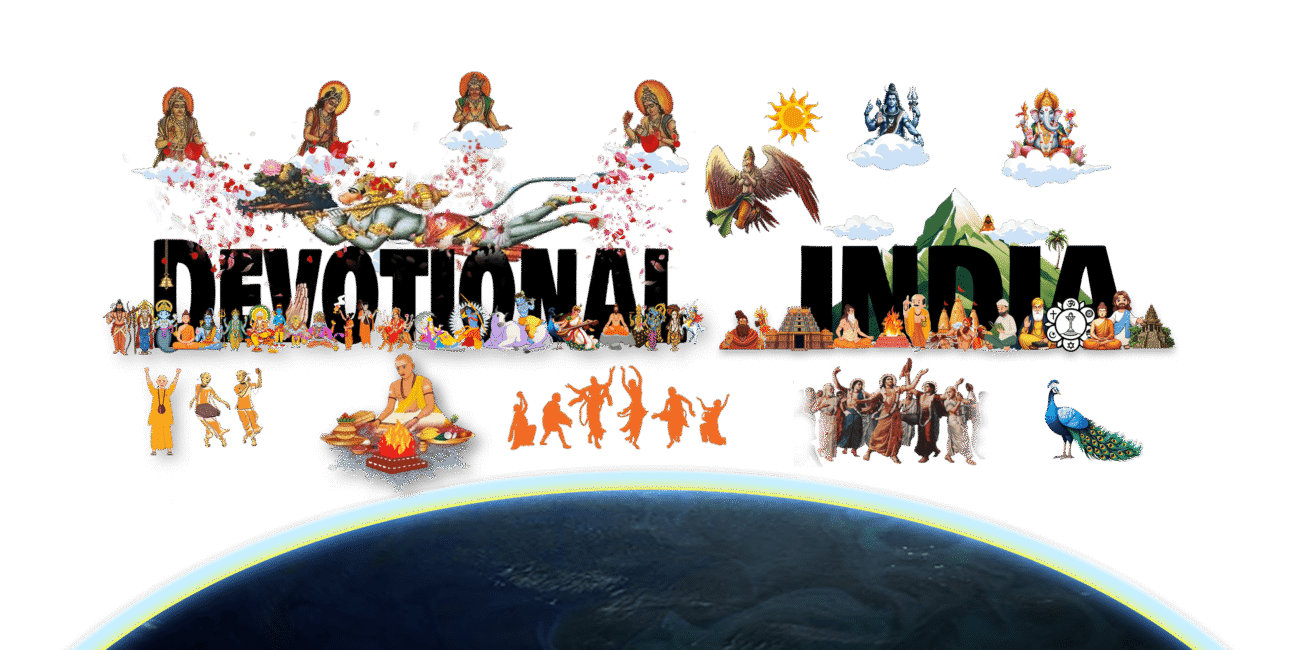Chapter 1
Arjuna Visada Yoga
The first chapter of the Bhagavad Gita – “Arjuna Vishada Yoga” introduces the setup, the setting, the characters and the circumstances that led to the epic battle of Mahabharata, fought between the Pandavas and the Kauravas. It outlines the reasons that led to the revelation of the of Bhagavad Gita. As both armies stand ready for the battle, the mighty warrior Arjuna, on observing the warriors on both sides becomes increasingly sad and depressed due to the fear of losing his relatives and friends and the consequent sins attributed to killing his own relatives. So, he surrenders to Lord Krishna, seeking a solution. Thus, follows the wisdom of the Bhagavad Gita.
Verse 1
BG 1.1
धृतराष्ट्र उवाच धर्मक्षेत्रे कुरुक्षेत्रे समवेता युयुत्सवः। मामकाः पाण्डवाश्चैव किमकुर्वत सञ्जय।।1.1।।
dhṛitarāśhtra uvācha dharma-kṣhetre kuru-kṣhetre samavetā yuyutsavaḥ māmakāḥ pāṇḍavāśhchaiva kimakurvata sañjaya
Translation
Dhritarashtra said, “What did my people and the sons of Pandu do when they had assembled together, eager for battle, on the holy plain of Kurukshetra, O Sanjaya?”Verse 2
BG 1.2
सञ्जय उवाच दृष्ट्वा तु पाण्डवानीकं व्यूढं दुर्योधनस्तदा। आचार्यमुपसङ्गम्य राजा वचनमब्रवीत्।।1.2।।
sañjaya uvācha dṛiṣhṭvā tu pāṇḍavānīkaṁ vyūḍhaṁ duryodhanastadā āchāryamupasaṅgamya rājā vachanamabravīt
Translation
Sanjaya said: Having seen the army of the Pandavas drawn up in battle array, King Duryodhana approached his teacher, Drona, and spoke these words.Verse 3
BG 1.3
पश्यैतां पाण्डुपुत्राणामाचार्य महतीं चमूम्। व्यूढां द्रुपदपुत्रेण तव शिष्येण धीमता।।1.3।।
paśhyaitāṁ pāṇḍu-putrāṇām āchārya mahatīṁ chamūm vyūḍhāṁ drupada-putreṇa tava śhiṣhyeṇa dhīmatā
Translation
Behold, O Teacher! This mighty army of the sons of Pandu, arrayed by the son of Drupada, thy wise disciple.
Verse 4
BG 1.4
अत्र शूरा महेष्वासा भीमार्जुनसमा युधि। युयुधानो विराटश्च द्रुपदश्च महारथः।।1.4।।
atra śhūrā maheṣhvāsā bhīmārjuna-samā yudhi yuyudhāno virāṭaśhcha drupadaśhcha mahā-rathaḥ
Translation
Here are heroes, mighty archers, equal in battle to Bhima and Arjuna, Yuyudhana (Satyaki), Virata, and Drupada—all mighty warriors.
Verse 5
BG 1.5
धृष्टकेतुश्चेकितानः काशिराजश्च वीर्यवान्। पुरुजित्कुन्तिभोजश्च शैब्यश्च नरपुङ्गवः।।1.5।।
dhṛiṣhṭaketuśhchekitānaḥ kāśhirājaśhcha vīryavān purujit kuntibhojaśhcha śhaibyaśhcha nara-puṅgavaḥ yudhāmanyuśhcha vikrānta uttamaujāśhcha vīryavān
Translation
Dhrishtaketu, Chekitana, the valiant king of Kasi, Purujit, Kuntibhoja, and Saibya—the best of men.Verse 6
BG 1.6
युधामन्युश्च विक्रान्त उत्तमौजाश्च वीर्यवान्। सौभद्रो द्रौपदेयाश्च सर्व एव महारथाः।।1.6।।
saubhadro draupadeyāśhcha sarva eva mahā-rathāḥ
Translation
The strong Yudhamanyu and the brave Uttamaujas, the son of Subhadra (Abhimanyu, the son of Subhadra and Arjuna), and the sons of Draupadi, all of them great charioteers (great heroes).”Verse 7
BG 1.7
अस्माकं तु विशिष्टा ये तान्निबोध द्विजोत्तम। नायका मम सैन्यस्य संज्ञार्थं तान्ब्रवीमि ते।।1.7।।
asmākaṁ tu viśhiṣhṭā ye tānnibodha dwijottama nāyakā mama sainyasya sanjñārthaṁ tānbravīmi te
Translation
Know also, O best among the twice-born! the names of those who are the most distinguished amongst ourselves, the leaders of my army; these I name to you for your information.Verse 8
BG 1.8
भवान्भीष्मश्च कर्णश्च कृपश्च समितिञ्जयः। अश्वत्थामा विकर्णश्च सौमदत्तिस्तथैव च।।1.8।।
bhavānbhīṣhmaśhcha karṇaśhcha kṛipaśhcha samitiñjayaḥ aśhvatthāmā vikarṇaśhcha saumadattis tathaiva cha
Translation
“Thou thyself, Bhishma, Karna, Kripa, the victorious in war, Asvatthama, Vikarna, and Bhurisrava, the son of Somadatta—all these are ready for battle.”Verse 9
BG 1.9
अन्ये च बहवः शूरा मदर्थे त्यक्तजीविताः। नानाशस्त्रप्रहरणाः सर्वे युद्धविशारदाः।।1.9।।
anye cha bahavaḥ śhūrā madarthe tyaktajīvitāḥ nānā-śhastra-praharaṇāḥ sarve yuddha-viśhāradāḥ
Translation
And also many other heroes, ready to give up their lives for my sake, armed with various weapons and missiles, all well-skilled in battle.Verse 10
BG 1.10
अपर्याप्तं तदस्माकं बलं भीष्माभिरक्षितम्। पर्याप्तं त्विदमेतेषां बलं भीमाभिरक्षितम्।।1.10।।
aparyāptaṁ tadasmākaṁ balaṁ bhīṣhmābhirakṣhitam paryāptaṁ tvidameteṣhāṁ balaṁ bhīmābhirakṣhitam
Translation
Our army, marshalled by Bhishma, is insufficient, whereas theirs, marshalled by Bhima, is sufficient.Verse 11
BG 1.11
अयनेषु च सर्वेषु यथाभागमवस्थिताः। भीष्ममेवाभिरक्षन्तु भवन्तः सर्व एव हि।।1.11।।
ayaneṣhu cha sarveṣhu yathā-bhāgamavasthitāḥ bhīṣhmamevābhirakṣhantu bhavantaḥ sarva eva hi
Translation
Therefore, do all of you, stationed in your respective positions in the several divisions of the army, protect Bhishma alone.Verse 12
BG 1.12
तस्य संजनयन्हर्षं कुरुवृद्धः पितामहः। सिंहनादं विनद्योच्चैः शङ्खं दध्मौ प्रतापवान्।।1.12।।
tasya sañjanayan harṣhaṁ kuru-vṛiddhaḥ pitāmahaḥ siṁha-nādaṁ vinadyochchaiḥ śhaṅkhaṁ dadhmau pratāpavān
Translation
His glorious grandsire, the oldest of the Kauravas, roared like a lion to cheer Duryodhana and blew his conch.Verse 13
BG 1.13
ततः शङ्खाश्च भेर्यश्च पणवानकगोमुखाः। सहसैवाभ्यहन्यन्त स शब्दस्तुमुलोऽभवत्।।1.13।।
tataḥ śhaṅkhāśhcha bheryaśhcha paṇavānaka-gomukhāḥ sahasaivābhyahanyanta sa śhabdastumulo ’bhavat
Translation
His glorious grandsire, the oldest of the Kauravas, roared like a lion to cheer Duryodhana and blew his conch.Verse 14
BG 1.14
ततः श्वेतैर्हयैर्युक्ते महति स्यन्दने स्थितौ। माधवः पाण्डवश्चैव दिव्यौ शङ्खौ प्रदध्मतुः।।1.14।।
tataḥ śhvetairhayairyukte mahati syandane sthitau mādhavaḥ pāṇḍavaśhchaiva divyau śhaṅkhau pradadhmatuḥ
Translation
Then, Madhava (Krishna) and the son of Pandu (Arjuna), seated in the magnificent chariot yoked with white horses, blew divine conches.Verse 15
BG 1.15
पाञ्चजन्यं हृषीकेशो देवदत्तं धनंजयः। पौण्ड्रं दध्मौ महाशङ्खं भीमकर्मा वृकोदरः।।1.15।।
pāñchajanyaṁ hṛiṣhīkeśho devadattaṁ dhanañjayaḥ pauṇḍraṁ dadhmau mahā-śhaṅkhaṁ bhīma-karmā vṛikodaraḥ
Translation
Hrishikesha blew the Panchajanya, Arjuna blew the Devadatta, and Bhima, the wolf-bellied doer of terrible deeds, blew the great conch Paundra.Verse 16
BG 1.16
अनन्तविजयं राजा कुन्तीपुत्रो युधिष्ठिरः। नकुलः सहदेवश्च सुघोषमणिपुष्पकौ।।1.16।।
anantavijayaṁ rājā kuntī-putro yudhiṣhṭhiraḥ nakulaḥ sahadevaśhcha sughoṣha-maṇipuṣhpakau
Translation
King Yudhishthira, the son of Kunti, blew the Anantavijaya; Nakula and Sahadeva blew the Sughosha and the Manipushpaka.
Verse 17
BG 1.17
काश्यश्च परमेष्वासः शिखण्डी च महारथः। धृष्टद्युम्नो विराटश्च सात्यकिश्चापराजितः।।1.17।।
kāśhyaśhcha parameṣhvāsaḥ śhikhaṇḍī cha mahā-rathaḥ dhṛiṣhṭadyumno virāṭaśhcha sātyakiśh chāparājitaḥ
Translation
The king of Kasi, an excellent archer, Sikhandi, the mighty car-warrior, Dhrishtadyumna, Virata, and Satyaki, the unconquered.
Verse 18
BG 1.18
द्रुपदो द्रौपदेयाश्च सर्वशः पृथिवीपते। सौभद्रश्च महाबाहुः शङ्खान्दध्मुः पृथक्पृथक्।।1.18।।
drupado draupadeyāśhcha sarvaśhaḥ pṛithivī-pate saubhadraśhcha mahā-bāhuḥ śhaṅkhāndadhmuḥ pṛithak pṛithak
Translation
Drupada and the sons of Draupadi, O Lord of the Earth, and the son of Subhadra, the mighty-armed, blew their conches each separately.
Verse 19
BG 1.19
स घोषो धार्तराष्ट्राणां हृदयानि व्यदारयत्। नभश्च पृथिवीं चैव तुमुलो व्यनुनादयन्।।1.19।।
sa ghoṣho dhārtarāṣhṭrāṇāṁ hṛidayāni vyadārayat nabhaśhcha pṛithivīṁ chaiva tumulo nunādayan
Translation
The tumultuous sound rent the hearts of Dhritarashtra’s party, reverberating through both heaven and earth.Verse 20
BG 1.20
अथ व्यवस्थितान् दृष्ट्वा धार्तराष्ट्रान्कपिध्वजः। प्रवृत्ते शस्त्रसंपाते धनुरुद्यम्य पाण्डवः।।1.20।।
atha vyavasthitān dṛiṣhṭvā dhārtarāṣhṭrān kapi-dhwajaḥ pravṛitte śhastra-sampāte dhanurudyamya pāṇḍavaḥ hṛiṣhīkeśhaṁ tadā vākyam idam āha mahī-pate
Translation
Then, seeing the people of Dhritarashtra’s party standing arrayed and the discharge of weapons about to begin, Arjuna, the son of Pandu whose ensign was a monkey, took up his bow and said the following to Krishna, O Lord of the Earth.
Verse 21
BG 1.21
अर्जुन उवाच हृषीकेशं तदा वाक्यमिदमाह महीपते। सेनयोरुभयोर्मध्ये रथं स्थापय मेऽच्युत।।1.21।।
arjuna uvācha senayor ubhayor madhye rathaṁ sthāpaya me ’chyuta
Translation
Arjuna said, “O Krishna, place my chariot in the middle between the two armies, so that I may behold those who stand here, desirous to fight, and know with whom I must fight when the battle is about to commence.”Verse 22
BG 1.22
यावदेतान्निरीक्षेऽहं योद्धुकामानवस्थितान्। कैर्मया सह योद्धव्यमस्मिन्रणसमुद्यमे।।1.22।।
yāvadetān nirīkṣhe ’haṁ yoddhu-kāmān avasthitān kairmayā saha yoddhavyam asmin raṇa-samudyame
Translation
Arjuna said, “O Krishna, place my chariot in the middle between the two armies, so that I may behold those who stand here, desirous to fight, and know with whom I must fight when the battle is about to commence.”Verse 23
BG 1.23
योत्स्यमानानवेक्षेऽहं य एतेऽत्र समागताः। धार्तराष्ट्रस्य दुर्बुद्धेर्युद्धे प्रियचिकीर्षवः।।1.23।।
yotsyamānān avekṣhe ’haṁ ya ete ’tra samāgatāḥ dhārtarāṣhṭrasya durbuddher yuddhe priya-chikīrṣhavaḥ
Translation
For I desire to observe those who are assembled here to fight, wishing to please in battle the evil-minded Duryodhana—the son of Dhritarashtra.Verse 24
BG 1.24
संजय उवाच एवमुक्तो हृषीकेशो गुडाकेशेन भारत। सेनयोरुभयोर्मध्ये स्थापयित्वा रथोत्तमम्।।1.24।।
sañjaya uvācha evam ukto hṛiṣhīkeśho guḍākeśhena bhārata senayor ubhayor madhye sthāpayitvā rathottamam
Translation
Sanjaya said, Thus addressed by Arjuna, Krishna stationed the best of chariots, O Dhritarashtra, in the midst of the two armies.Verse 25
BG 1.25
भीष्मद्रोणप्रमुखतः सर्वेषां च महीक्षिताम्। उवाच पार्थ पश्यैतान्समवेतान्कुरूनिति।।1.25।।
bhīṣhma-droṇa-pramukhataḥ sarveṣhāṁ cha mahī-kṣhitām uvācha pārtha paśhyaitān samavetān kurūn iti
Translation
In front of Bhishma and Drona, and all the rulers of the earth, he said: “O Arjuna, son of Pritha, behold these Kurus gathered together.”Verse 26
BG 1.26
तत्रापश्यत्स्थितान्पार्थः पितृ़नथ पितामहान्। आचार्यान्मातुलान्भ्रातृ़न्पुत्रान्पौत्रान्सखींस्तथा।।1.26।।
tatrāpaśhyat sthitān pārthaḥ pitṝīn atha pitāmahān āchāryān mātulān bhrātṝīn putrān pautrān sakhīṁs tathā śhvaśhurān suhṛidaśh chaiva senayor ubhayor api
Translation
Then, Arjuna (son of Pritha) saw there (in the armies) stationed fathers, grandfathers, teachers, maternal uncles, brothers, sons, grandsons, and friends.
Verse 27
BG 1.27
श्वशुरान्सुहृदश्चैव सेनयोरुभयोरपि। तान्समीक्ष्य स कौन्तेयः सर्वान्बन्धूनवस्थितान्।।1.27।।
tān samīkṣhya sa kaunteyaḥ sarvān bandhūn avasthitān kṛipayā parayāviṣhṭo viṣhīdann idam abravīt
Translation
He saw fathers-in-law and friends in both the armies. The son of Kunti, Arjuna, seeing all those kinsmen thus standing arrayed, spoke sorrowfully, deeply filled with pity.Verse 28
BG 1.28
अर्जुन उवाच कृपया परयाऽऽविष्टो विषीदन्निदमब्रवीत्। दृष्ट्वेमं स्वजनं कृष्ण युयुत्सुं समुपस्थितम्।।1.28।।
arjuna uvācha dṛiṣhṭvemaṁ sva-janaṁ kṛiṣhṇa yuyutsuṁ samupasthitam
Translation
Arjuna said, “O Krishna, seeing my kinsmen arrayed here, eager to fight.
Verse 29
BG 1.29
सीदन्ति मम गात्राणि मुखं च परिशुष्यति। वेपथुश्च शरीरे मे रोमहर्षश्च जायते।।1.29।।
sīdanti mama gātrāṇi mukhaṁ cha pariśhuṣhyati vepathuśh cha śharīre me roma-harṣhaśh cha jāyate
Translation
My limbs fail, my mouth is parched, my body quivers, and my hair stands on end.Verse 30
BG 1.30
गाण्डीवं स्रंसते हस्तात्त्वक्चैव परिदह्यते। न च शक्नोम्यवस्थातुं भ्रमतीव च मे मनः।।1.30।।
gāṇḍīvaṁ sraṁsate hastāt tvak chaiva paridahyate na cha śhaknomy avasthātuṁ bhramatīva cha me manaḥ
Translation
The Gandiva slips from my hand, and my skin burns all over; I am unable to stand, and my mind is reeling, as it were.Verse 31
BG 1.31
निमित्तानि च पश्यामि विपरीतानि केशव। न च श्रेयोऽनुपश्यामि हत्वा स्वजनमाहवे।।1.31।।
nimittāni cha paśhyāmi viparītāni keśhava na cha śhreyo ’nupaśhyāmi hatvā sva-janam āhave
Translation
And I see ill omens, O Kesava. I do not see any good in slaying my kinsmen in battle.Verse 32
BG 1.32
न काङ्क्षे विजयं कृष्ण न च राज्यं सुखानि च। किं नो राज्येन गोविन्द किं भोगैर्जीवितेन वा।।1.32।।
na kāṅkṣhe vijayaṁ kṛiṣhṇa na cha rājyaṁ sukhāni cha kiṁ no rājyena govinda kiṁ bhogair jīvitena vā
Translation
I desire not victory, O Krishna, nor kingdom, nor pleasures. What use is dominion to us, O Krishna, or pleasures or even life?
Verse 33
BG 1.33
येषामर्थे काङ्क्षितं नो राज्यं भोगाः सुखानि च। त इमेऽवस्थिता युद्धे प्राणांस्त्यक्त्वा धनानि च।।1.33।।
yeṣhām arthe kāṅkṣhitaṁ no rājyaṁ bhogāḥ sukhāni cha ta ime ’vasthitā yuddhe prāṇāṁs tyaktvā dhanāni cha
Translation
Those for whose sake we desire kingdom, enjoyments, and pleasures stand here in battle, having renounced life and wealth.
Verse 34
BG 1.34
आचार्याः पितरः पुत्रास्तथैव च पितामहाः। मातुलाः श्चशुराः पौत्राः श्यालाः सम्बन्धिनस्तथा।।1.34।।
āchāryāḥ pitaraḥ putrās tathaiva cha pitāmahāḥ mātulāḥ śhvaśhurāḥ pautrāḥ śhyālāḥ sambandhinas tathā
Translation
The Gandiva slips from my hand, and my skin burns all over; I am unable to stand, and my mind is reeling, as it were.Verse 35
BG 1.35
एतान्न हन्तुमिच्छामि घ्नतोऽपि मधुसूदन। अपि त्रैलोक्यराज्यस्य हेतोः किं नु महीकृते।।1.35।।
etān na hantum ichchhāmi ghnato ’pi madhusūdana api trailokya-rājyasya hetoḥ kiṁ nu mahī-kṛite
Translation
These I do not wish to kill, O Krishna, even though they kill me, for the sake of dominion over the three worlds; leave alone killing them for the sake of the earth.”Verse 36
BG 1.36
निहत्य धार्तराष्ट्रान्नः का प्रीतिः स्याज्जनार्दन। पापमेवाश्रयेदस्मान्हत्वैतानाततायिनः।।1.36।।
nihatya dhārtarāṣhṭrān naḥ kā prītiḥ syāj janārdana pāpam evāśhrayed asmān hatvaitān ātatāyinaḥ
Translation
By killing these sons of Dhritarashtra, what pleasure could be ours, O Janardana? Only sin would accrue to us from killing these felons.Verse 37
BG 1.37
तस्मान्नार्हा वयं हन्तुं धार्तराष्ट्रान्स्वबान्धवान्। स्वजनं हि कथं हत्वा सुखिनः स्याम माधव।।1.37।।
tasmān nārhā vayaṁ hantuṁ dhārtarāṣhṭrān sa-bāndhavān sva-janaṁ hi kathaṁ hatvā sukhinaḥ syāma mādhava
Translation
Therefore, we should not kill the sons of Dhritarashtra, our relatives; for how can we be happy by killing our own kin, O Madhava (Krishna)?
Verse 38
BG 1.38
यद्यप्येते न पश्यन्ति लोभोपहतचेतसः। कुलक्षयकृतं दोषं मित्रद्रोहे च पातकम्।।1.38।।
yady apy ete na paśhyanti lobhopahata-chetasaḥ kula-kṣhaya-kṛitaṁ doṣhaṁ mitra-drohe cha pātakam
Translation
Though they, with intelligence overpowered by greed, see no evil in the destruction of families and no sin in hostility to friends.Verse 39
BG 1.39
कथं न ज्ञेयमस्माभिः पापादस्मान्निवर्तितुम्। कुलक्षयकृतं दोषं प्रपश्यद्भिर्जनार्दन।।1.39।।
kathaṁ na jñeyam asmābhiḥ pāpād asmān nivartitum kula-kṣhaya-kṛitaṁ doṣhaṁ prapaśhyadbhir janārdana
Translation
Why should we not, who clearly see the evil in the destruction of families, learn to turn away from this sin, O Janardana (Krishna)?Verse 40
BG 1.40
कुलक्षये प्रणश्यन्ति कुलधर्माः सनातनाः। धर्मे नष्टे कुलं कृत्स्नमधर्मोऽभिभवत्युत।।1.40।।
kula-kṣhaye praṇaśhyanti kula-dharmāḥ sanātanāḥ dharme naṣhṭe kulaṁ kṛitsnam adharmo ’bhibhavaty uta
Translation
These I do not wish to kill, O Krishna, even though they kill me, for the sake of dominion over the three worlds; leave alone killing them for the sake of the earth.”
Verse 41
BG 1.41
अधर्माभिभवात्कृष्ण प्रदुष्यन्ति कुलस्त्रियः। स्त्रीषु दुष्टासु वार्ष्णेय जायते वर्णसङ्करः।।1.41।।
adharmābhibhavāt kṛiṣhṇa praduṣhyanti kula-striyaḥ strīṣhu duṣhṭāsu vārṣhṇeya jāyate varṇa-saṅkaraḥ
Translation
O Krishna, by the prevalence of impiety, the women of the family become corrupt; and, when women are corrupted, O Varshenya (descendant of Vrishni), intermingling of castes arises.Verse 42
BG 1.42
सङ्करो नरकायैव कुलघ्नानां कुलस्य च। पतन्ति पितरो ह्येषां लुप्तपिण्डोदकक्रियाः।।1.42।।
saṅkaro narakāyaiva kula-ghnānāṁ kulasya cha patanti pitaro hy eṣhāṁ lupta-piṇḍodaka-kriyāḥ
Translation
Confusion of castes leads to hell for the slayers of the family, for their forebears fall, deprived of the offerings of rice-balls and libations of water.Verse 43
BG 1.43
दोषैरेतैः कुलघ्नानां वर्णसङ्करकारकैः। उत्साद्यन्ते जातिधर्माः कुलधर्माश्च शाश्वताः।।1.43।।
doṣhair etaiḥ kula-ghnānāṁ varṇa-saṅkara-kārakaiḥ utsādyante jāti-dharmāḥ kula-dharmāśh cha śhāśhvatāḥ
Translation
By these evil deeds of the destroyers of the family, which cause confusion of castes, the eternal religious rites of the caste and the family are destroyed.
Verse 44
BG 1.44
उत्सन्नकुलधर्माणां मनुष्याणां जनार्दन। नरकेऽनियतं वासो भवतीत्यनुशुश्रुम।।1.44।।
utsanna-kula-dharmāṇāṁ manuṣhyāṇāṁ janārdana narake ‘niyataṁ vāso bhavatītyanuśhuśhruma
Translation
We have heard, O Janardana, that those men in whose families the religious practices have been destroyed are inevitably destined to dwell in hell for an unknown period.Verse 45
BG 1.45
अहो बत महत्पापं कर्तुं व्यवसिता वयम्। यद्राज्यसुखलोभेन हन्तुं स्वजनमुद्यताः।।1.45।।
aho bata mahat pāpaṁ kartuṁ vyavasitā vayam yad rājya-sukha-lobhena hantuṁ sva-janam udyatāḥ
Translation
Alas! We are involved in a great sin, for we are prepared to kill our kinsmen, out of greed for the pleasures of a kingdom.Verse 46
BG 1.46
यदि मामप्रतीकारमशस्त्रं शस्त्रपाणयः। धार्तराष्ट्रा रणे हन्युस्तन्मे क्षेमतरं भवेत्।।1.46।।
yadi mām apratīkāram aśhastraṁ śhastra-pāṇayaḥ dhārtarāṣhṭrā raṇe hanyus tan me kṣhemataraṁ bhavet
Translation
If the sons of Dhritarashtra, with weapons in hand, should slay me in battle, unresisting and unarmed, that would be better for me.Verse 47
BG 1.47
सञ्जय उवाच एवमुक्त्वाऽर्जुनः संख्ये रथोपस्थ उपाविशत्। विसृज्य सशरं चापं शोकसंविग्नमानसः।।1.47।।
sañjaya uvācha evam uktvārjunaḥ saṅkhye rathopastha upāviśhat visṛijya sa-śharaṁ chāpaṁ śhoka-saṁvigna-mānasaḥ


